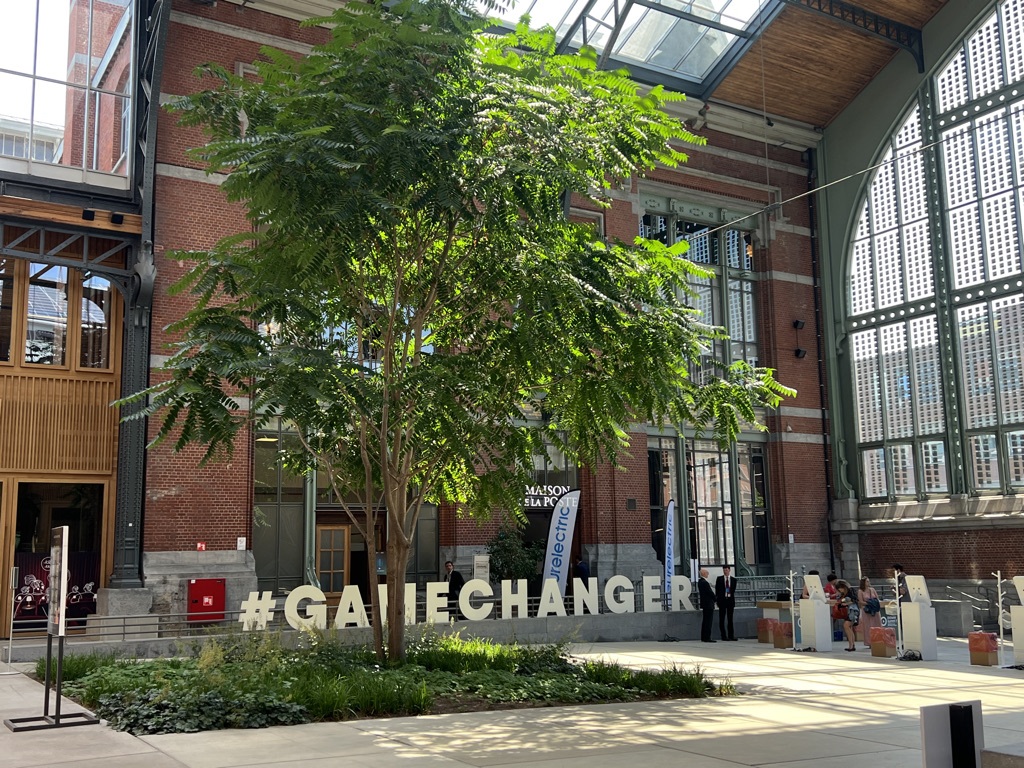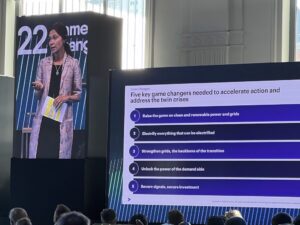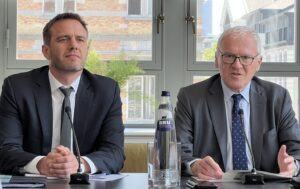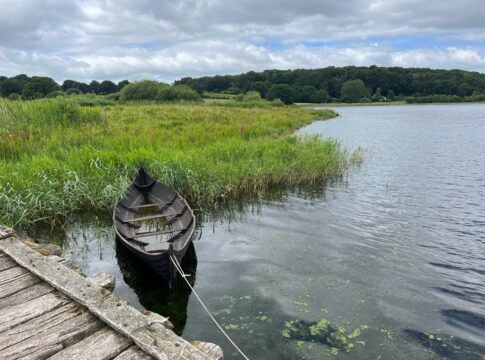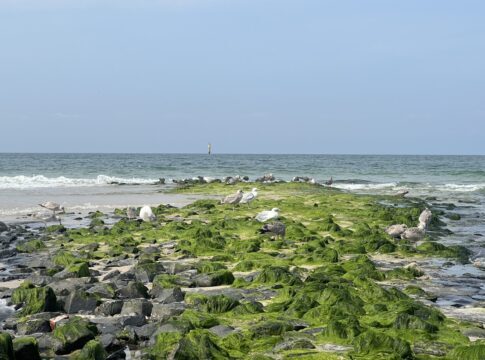The meeting in Brussels had a clear message: Everything has to happen in almost no time. But what to do first?
There is not first, no last, because every has to be done a the same time, and: We have to learn from each other. The situation is complex. This is in short the main message that I took from a conference by EURELECTRIC middle of June. It took place in the former Central Mail Post office, in a building that was restored and is now probably the most sustainable building in Brussels, as one of the participants commented.
During the conference I had the chance to speak with one of the organizers: Secretary General of Eurelectric, Kristian Ruby.(Left side)
What is the difference between this year’s meetings and the ones before?
Is there anything special?
I think it is special that we’re coming back to a new normal. It has been three years since we met with the key industry players in person. And it is a very big difference. This also happens to coincide with the need for a completely unprecedented and enormous transformation, that the industry now faces. I think everybody who has studied these numbers struggles to really imagine how we can do so much so fast. Yet everybody, and this was also clear from this morning’s discussion, everybody acknowledges it is necessary. So there is a strong will to do the impossible while still a certain – let’s say – level of humility over the size of the task.
At what end should the transformation start?
One key characteristic for what needs to happen now is that we have to do multiple things at the same time. We need to scale everything at a pace we have not tried before, and this is also what can give you a feeling of a lack of overview. We need to build out the renewables in a very, very short time frame, we need to reinforce the grids, we need to apply digital solutions, we need to invent and build a hydrogen ecosystem that is not there today, and there is not a single one of these things that can do without the others.
What are the most important things that are need it from the political side?
I would say, we welcome a lot of what has been put on the table as part of the re-power EU. The key challenge for a long time has been the permitting. The industry wanted to go, the ambitious targets were there, but the permission to fulfill the goal was lacking. And now we have some concrete significantly improved proposals for how this can be done with the go to zones, with the overriding public interest, and the significant shortening of permitting lead times. So that is a key piece politically. It still needs to happen, it still needs to be implemented, and passed through the Parliament and the Council.
Then, when looking beyond that, we need to make sure that the perfect is not becoming the enemy of the good. For instance when we talk about the green hydrogen, the so-called additionality requirements (which are needed to qualify as green) are so strict that they risk becoming counter-productive. They are made so strict with good intentions and for reasons of environmental integrity. But they are so difficult to fullfil that they will hamper investment. We risk delays in investment and production, because people will be waiting for the renewables to come before they actually start building the electrolysis. This is unfortunatley counterproductive.
I think, a key word is flexibility in the next few years. There needs to be a flexibility also in the mind set. The longer term is extremely clear. We need to accelerate at an unprecedented speed, some people will also need to do a few things that will not really be part of the plan, such as burning coal, if we are forced to by the Russian war against Ukraine. Of course, this should not be seen as a return to old solutions, it is a matter of tackling an emergency situation with the necessary means, and that is part of the flexibility we need to integrate in our mindset in order to succeed under these difficult circumstances.
Do you see that the EU politics with a lot of „national“ within the structures of the EU can go on? What are the challenges within the EU?
I think what we are really talking about here is the challenge of cooperating between 450 million individuals. Almost by definition, that is going to be complicated. Some things need to do done between you and me in the local community, at the local school, at the local work place, at the municipality. Asking all these things work for 450 million people is just an incredibly complex task. Inevitably, there will be some frictions between levels. There will be discussions over what comes top-down what can be agreed bottom-up. How do you solve that? The positive message I want to send here is that despite all this complexity I feel that the European Union consistently succeeds with the solving them by setting ambitious targets and devising plans for how to reach them. We remain the block in the world that shows leadership on some of the most challenging questions of our time.
So, even if things can be frustratingly slow at times, and you want to go faster, I sometimes remind people of the story about the rabbit and the tortoise that we competing. The rabbit ran very fast in the beginning but then lost interest, and the EU is sometimes a bit like the tortoise that is very slow, but then still gets to the target.
So, what is the potential on the demand side?
I think we need to be clear that immediate changes on the demand side are absolutely essential to deal with our current challenge.
Tackling this situation really goes through every individual household, not least the poor households. There is this challenge of creating signals, investment signals in frameworks here in Brussels, thousands of kilometers from the individual households somewhere out there on a Greek island or in the north of Finland to make them respond to this energy challenge that we are facing. Some of that of course also needs to be structured locally, and local communities, local authorities can play a big role in this and succeed.
Where do you see Eurelectric’s major task for the coming years?
I think we can play a key role in helping to make policy makers understand what is needed to succeed with these things. As our President said today: If the target is 40 or 45, or 50, the challenge remains the same, frankly, because all of them are so far away from where we are. So it is really about the how. About the know-how of installing concrete equipment, for instance new heating systems, electrifying transport systems etc. About sharing that expertise, bringing it together in structured advice for the policy makers and also working as a collaboration platform.
Many of the sectors that will need electricity in the future, they come to us to discuss and understand. I think providing a platform for that is valuable because nobody has all the answers at the same time and, inevitably, we have to learn a lot from each other.
What will be the best sources to get the information needed for people everywhere in the EU? Leaders, but also on the community level.
So we need to rely on a multitude of sources of information. And I can tell you that when I look at what is going on in Russia, I am extremely happy that we have a free and critical press in Europe that challenges decision makers, challenges industry, and provides critical insights.
One of the things that industry can do is to provide the infrastructure for information. Here I talk about the digital infrastructure that can help people make decisions about how to plan and reduce their energy consumption. Speeding up digitalization, also in the individual households, can really be a tool to get that activation of the customers that is required.
(The interview was authorized by Kristian Ruby)
15.Juni 2022
Brussels

